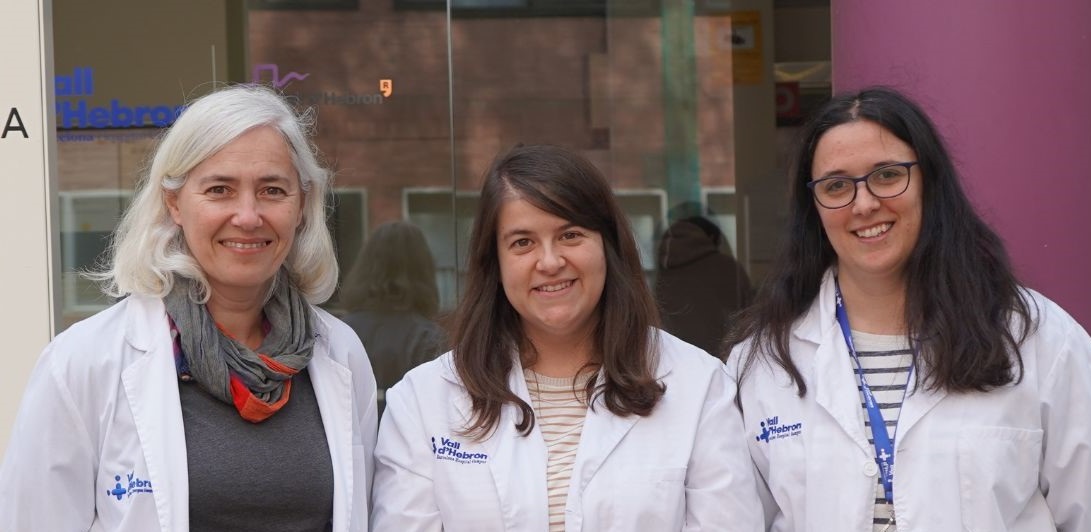
NANBIOSIS researchers reach intracellular targets with encapsulated antibodies.
February 2024, IQAC-CSIC/CIBER-BBN, Barcelona (Spain) and Santiago (Chile)
Dr. Abasolo and her team have developed an innovative strategy to combat intracellular oncogenes, notably KRAS, implicated in various deadly cancers. By encapsulating therapeutic antibodies within polymeric micelles, they have successfully facilitated the entry of these antibodies into cancer cells, targeting internal markers. This breakthrough, achieved through international collaboration, represents a significant advancement in cancer treatment and holds promise for addressing other diseases with intracellular targets. These findings provide hope for improved therapies and outcomes in cancer and beyond.
Every individual is said to have an inner enemy, lurking to sabotage under favorable circumstances. In the case of our cells, this rings particularly true. Some genes are as necessary for their proper function as they are dangerous when they malfunction. Those that, under certain circumstances, promote tumor development are known as oncogenes. But we now have new tools to combat them.
In the ongoing battle against cancer, researchers have reached a significant milestone in combatting intracellular oncogenes. Thanks to a groundbreaking strategy developed by Dr. Abasolo and her team from Unit 20, they managed to reach particularly difficuly intracellular targets. Their innovative approach involves utilizing therapeutic antibodies encapsulated in polymeric micelles, facilitating their entry into cancer cells and targeting internal markers. The results, achieved through international collaboration, mark a significant advancement in cancer treatment and hold promising possibilities for addressing other diseases with intracellular targets.
KRAS is the name given to one of these oncogenes, and it’s a particularly dangerous foe. The small protein produced by the KRAS gene is a molecular switch that controls numerous cellular functions, including survival, proliferation, differentiation, and migration. When KRAS mutates, this switch stops working, preventing the cell from self-regulating, often leading to some of the most malignant and lethal types of cancer, such as pancreatic, colon, or lung cancer. Moreover, this mutated protein is difficult to target due to its unique molecular structure and the fact that it resides within the cell. However, thanks to our new anti-tumor technology, we’re able to reach it.
One method of blocking mutated KRAS is through the use of therapeutic antibodies. These antibodies, by specifically binding to the protein, inhibit its function, halting the malignancy of cancer cells. However, one of the challenges in using these antibodies is that they cannot enter cells on their own. None of the attempts to internalize them have been successful, until now.
In a recent study published last year, the team led by Dr. Abasolo, in which our Unit 20 is integrated, has successfully attacked mutated KRAS using anti-KRAS antibodies. To achieve this, they encapsulated the antibodies in nanometric drug delivery systems (NanoDDS). Specifically, they used micelles composed of a polymer capable of surrounding the antibodies, facilitating their entry into cells. Furthermore, these nanostructures enable passive and selective entry into tumors and, to top it off, the polymer used prevents the emergence of dreaded cancer multi-drug resistances.
These unprecedented results are the product of international collaboration, where in silico simulation, in vitro assays, and animal studies have gone hand in hand. These results have demonstrated the effectiveness of a new tool capable not only of serving in the fight against cancer, but also of acting on therapeutic intracellular targets present in many other diseases. A way to defeat that inner enemy.
References
[1] Diana Rafael, Sara Montero, Pilar Carcavilla, Fernanda Andrade, Júlia German-Cortés, Zamira V. Diaz-Riascos, Joaquin Seras-Franzoso, Monserrat Llaguno, Begoña Fernández, Alfredo Pereira, Esteban F. Duran-Lara, Simó Schwartz Jr., and Ibane Abasolo. Intracellular Delivery of Anti-Kirsten Rat Sarcoma Antibodies Mediated by Polymeric Micelles Exerts Strong In Vitro and In Vivo Anti-Tumorigenic Activity in Kirsten Rat Sarcoma-Mutated Cancers. ACS Applied Materials & Interfaces 2023 15 (8), 10398-10413 DOI: 10.1021/acsami.2c19897Additional information
In this project, Unit 20 of the NANBIOSIS ICTS has collaborated, providing both functional validation and all preclinical trials with murine models. All of this has been conducted following the strictest ethical guidelines.
The goal of NANBIOSIS is to provide comprehensive and integrated advanced solutions for companies and research institutions in biomedical applications. All of this is done through a single-entry point, involving the design and production of biomaterials, nanomaterials, and their nanoconjugates. This includes their characterization from physical-chemical, functional, toxicological, and biological perspectives (preclinical validation).
In order to access our biomedical Solutions, apply here.
NANBIOSIS has worked with pharmaceutical companies of all sizes in the areas of drug delivery, biomaterials and regenerative medicine. Here are a few of them:









